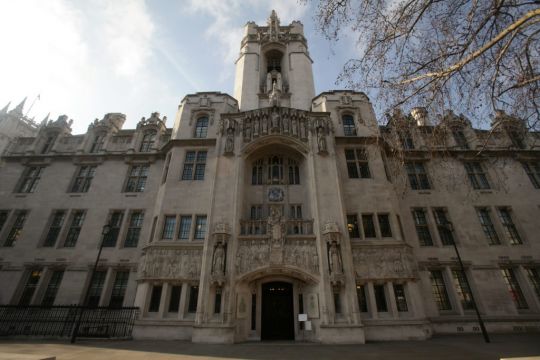The SNP has formally submitted an application to intervene in a case that could allow the Scottish parliament to legislate for an independence referendum.
In a 15-page submission to the court, lawyers Claire Mitchell QC and David Welsh argue that it would “fair, just and reasonable” to allow the SNP to intervene in the proceedings.
The Lord Advocate last month asked the Supreme Court to decide whether a prospective Bill which would legislate for another referendum would be within the powers of Holyrood, filing a written submission that leaned heavily on any vote being purely advisory and not self executing.
The court said it would hear oral arguments from both sides on October 11th and 12th, and now the SNP has requested the chance to lay out its case for another vote as well.
⚖️ The Lord Advocate's reference on the independence referendum will be heard in the Supreme Court on 11-12 October.
🏴 The SNP has now submitted an application to intervene in the independence referendum case.
👇🏼 Read the full application here.https://t.co/Ua2WY51igUAdvertisement— The SNP (@theSNP) August 2, 2022
The rules of the court, the submission says, allow for “any official body or non-governmental organisation seeking to make submissions in the public interest” to apply to intervene.
“In all the circumstances, it would be fair, just, and reasonable for the applicant to be granted permission to intervene in these proceedings in order to make submissions on the matters set out above,” the submission continued.
“The submissions will be of assistance to the court and no party will suffer prejudice as a result of the applicant being able to take part in these proceedings.”
On the substance of the case, the SNP submission raises a number of issues, including the party’s past manifesto commitments, which were made before elections which the party won.
The submission also argues the right to self-determination is one that is “fundamental and inalienable”.
“The applicant submits that, properly construed, the Scottish parliament does have the legislative competence to legislate for a referendum on Scottish independence,” it said.
“The applicant wishes to make developed submissions on this matter if permitted to intervene in these proceedings.”
The submission added: “A single-question referendum on the matter of Scottish independence is the clearest way in which the will of the Scottish people can be ascertained.
“The issue directly affects the Scottish people as a whole. It is also important to everyone in Scotland, in particular, those who voted for the applicant.”
The filing also repeated that argument made by Lord Advocate Dorothy Bain QC that a referendum on independence would be to ascertain the views of the Scottish people and would not automatically implement the result.
“The applicant regards it of fundamental importance to these proceedings that it be recognised that the holding of a referendum, such as that which is being proposed, does not of itself implement the result or the outcome of that referendum.
“The referendum indicates the view of the demos on the question posed to it.
“That there will be subsequent secondary discussions between the UK and Scottish governments in the event that the Scottish people indicate their support for Scottish independence does not change that.
“Those discussions are separate from the referendum and do not inform its purpose.”







